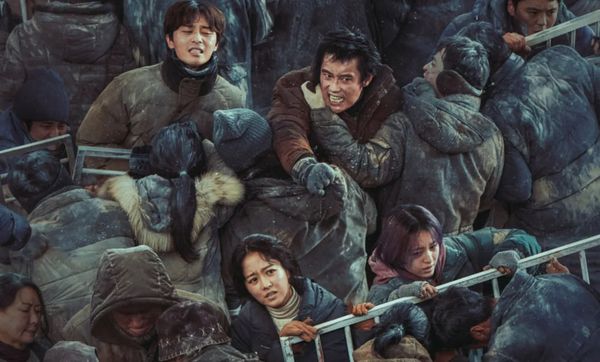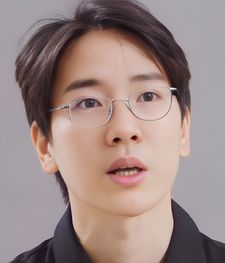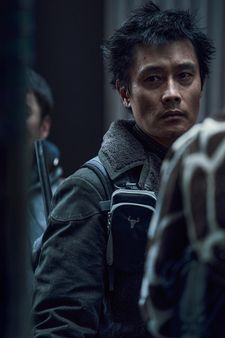 |
| Concrete Utopia |
With Concrete Utopia, South Korea has once again hit the sweet spot between making a film of sufficient quality and depth to go for the big awards – it’s the country’s official Oscar submission for 2024 – and making one which is entertaining enough to pull in the crowds. Set in the aftermath of a disaster which sees massive earthquakes shatter the concrete infrastructure of Seoul, it focuses on the inhabitants of the last apartment building standing, and the increasingly extreme decisions they make as they try to survive. Playing the man whom they elect as their leader is one of Korea’s most popular actors, Lee Byung-hun, and the director is Um Tae-hwa. In the run-up to its US release I met the two of them at a press conference where they discussed the film’s satirical themes and its complex characters.
 |
| Concrete Utopia director Um Tae-hwa Photo: Mickey Đại Phát |
“I was always interested in Korean apartments as the dwelling type,” explains Um, through a translator. “I was wondering why they were built in the same form and they keep getting demolished and then rebuilt. I was also interested in why the value of this apartment is more than just a dwelling place, but it's becoming more of an asset for people. It’s kind of sad thinking that rather than being somebody's home, it is more valuable as an asset.
“While I was thinking of that, I came across this webtoon called Cheerful Outcast. The backstory of that webtoon is that everything has collapsed and that there's only one apartment building remaining in Seoul. I thought it was a great background story to talk about that dwelling type in Korean society, so I decided to adopt this webtoon into a film.
“After the Korean War, Korea rapidly developed. One of the reasons is because it had this very strong sense of community and that contributed to the rapid development of the country. So that is a good side. But on the other hand, because of their collective citizenry, if you stand out from the group, they try to restrain or reject your individuality.”
Lee’s character, Kim Yeong-tak, is very much an individual, a complicated man with dark secrets in his past who initially hesitates at being made leader but, in taking the responsibility seriously, begins to take the community in disturbing directions. Although he can be seen as a villain, that’s clearly not the way he understands himself, and Lee found him intriguing.
“First of all, I had a lot of questions with the director about this character,” he says. “Of course, there are descriptions in the script about this character, but I think most of the details were created while I was having a conversation with the director. So Yeong-tak has just lost everything, his family, his home, and he was probably not interested in living. He had no interest in anything, no reason to go on. And in these very depressing circumstances, all of a sudden something happened and he started to gain power and he's slowly transforming in this very extreme situation. And I think that was a very important part of this character. As an actor, that's the part that I focus on, and that's how I build my character.”
There’s a lot of focus on class in the film. I ask Lee if he thinks that Yeong-tak’s movement between classes in the course of the film gives him a perspective – and therefore a kind of power – which other characters don’t have.
 |
| Lee Byung-hun as Kim Yeong-tak in Concrete Utopia |
“It was very interesting as an actor to play the role” he says. “This character in the beginning, he had nothing and he was very depressed. But when he heard that the world had been reset, I think that gave him the confidence to restart his life. At that point he was thinking about what could he do for the residents of the apartment. But at some point this power started to become really overwhelming and he started to be a little bit obsessed with the power itself.
“Of course, he used the power not just for good, but you can't really say that it's all his fault. That subtlety was very interesting for me. I want the audience to ask about this character, whether he was not an absolutely evil person or absolutely good character, but anyone in that kind of situation might be able to make those choices. That was a point that we wanted to leave throughout the film. And that's the part that I had a lot of conversation with the director about, in terms of building up this character.
“At the end of the movie, I didn't want to give an answer to the audience saying ‘This is good,’ or ‘This is evil.’ Instead of giving them an answer, I wanted the audience to ask themselves. I wanted the film to be a question for the audience. All these characters in the film, there's no absolutely evil or absolutely good characters. I wanted them to be very ordinary people so that everybody can really identify with these characters. And with the Yeong-tak character, you see him making these not so great choices and you can't support what he's doing. But I wanted to make it so that people can at least understand where he's coming from.”
It comes down to the difference between the residents and outsiders, Um suggests.
“The Yeong-tak character is an outsider, but he is also a resident as well. And I think instead of giving him more power because he knew both of these worlds, it was sort of a set up to make the character more three dimensional. The apartment residents were so frightened that they had to elect a leader who would make decisions for them, so they could be relieved from being frightened or from their own responsibility.”
Concrete Utopia is in US cinemas from Friday 8 December.





















